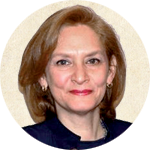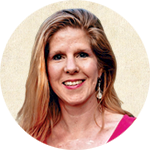The Weight of Words
It can begin with a picture in one’s mind, a rush of air from the throat, the scrape of pen on paper, the click of a keyboard.
But when words become art, they levy a weight in your chest, your heart, and your mind, says Lee Upton, Francis A. March Professor of English and writer-in-residence.
“A friend of mine told me you never want to write a poem that’s like a Kleenex, where you use it once and you throw it away,” she says. “There’s a sense that a strong poem is language that has a sort of stickiness and an ability to live in the mind and to open up further and further possibilities.”
A great poem, Upton says, distills language, creates a new experience, and weighs on the mind.
For 67 years, the H. MacKnight Black Poetry Competition has measured the heft of verse from Lafayette poets. The competition, launched in 1950, was endowed by the family of H. MacKnight Black 1916, an important poet before his death in 1931. He wrote in his poem “Fulfillment”:
I write it now in ink,
The word that was written in blood—
It will come, one day, in light
For all to read.
By deed of gift, the winning student receives $500, and the contest is only open to seniors. For many of the winners, it was the first time they were paid or taken seriously as a writer. “Some of these poets have gone on to do remarkable things,” says Upton.
For others, it was a sign of promise they chose not to explore.
Up until 1994, when Pulitzer Prize-winning poet Paul Muldoon was asked to judge the competition, a panel of Lafayette faculty selected the winners. Since then, judges have been renowned poets such as Major Jackson, Heather McHugh, and Lynn Emanuel.
“We try to bring poets who aren’t representing one style or theme so that we can expose our students to a broad range of different sorts of poetry,” Upton says. The first winner under the new structure—Jennifer Torres Jones ’94—says her inspiration came from Muldoon, who would ultimately present her with the prize during the annual award ceremony at Lafayette. “Aunt Claire is dancing with no shadows because the world was flat not round,/one sip of absinthe and the beasts are/louder than their sound,” she writes in her winning poem, “A Visit with the Artist.”
“The poem is mysterious and dynamic and filled to the brim with echoing sound effects and gorgeous, succulent images,” Upton says. “What a beautiful, ambitious, uncanny poem.”
As the contest nears its seventh decade in April with poet Jill Bialosky slated to be the guest judge, we look back at some of the winners from years past.
Daniel Miller ’51
 During the restless years after World War II, Miller was an English major.
During the restless years after World War II, Miller was an English major.
Artistically, he was forged in the Beat Generation of Jack Kerouac. In the summers, Miller hit the road. He hitchhiked through every state and rubbed elbows with homeless men wandering in search of something.
Miller knew he wanted to be an artist—he just hadn’t found his genre. He’d been dabbling in poetry and writing, and showed enough promise that during his second year, legendary English Professor William Watt suggested he submit his work to the new poetry contest.
Miller tried, but didn’t win. “Keep working on it,” Watt told him.
Senior year Miller won for his entry “Birds and Beyond Birds.” He no longer has a copy. “The best compliment I got was that one of the judges said it made him laugh,” says Miller, who now lives in Lancaster, Pa.
After graduating, he attended Yale for a year before being drafted to serve in the Korean War. When he returned, he studied painting at Pennsylvania Academy of Fine Arts, where he still teaches traditional painting, drawing, and printmaking. He’s also a full-time artist. He still writes, but only for himself.
In 1985, 34 years after Miller became the second person ever to win the award, his daughter, Andrea Miller Jacobsen ’85, won.
Don Sayenga ’56
 In the 1950s, Sayenga didn’t look much like a poet. He was a champion heavyweight wrestler on the Lafayette team. He wasn’t even an English major; Sayenga would obtain a degree in metallurgical engineering. What business did he have being in a poetry contest? “I was broke and needed the cash,” he says.
In the 1950s, Sayenga didn’t look much like a poet. He was a champion heavyweight wrestler on the Lafayette team. He wasn’t even an English major; Sayenga would obtain a degree in metallurgical engineering. What business did he have being in a poetry contest? “I was broke and needed the cash,” he says.
Poetry, as it turned out, was a natural fit. At Lafayette, Sayenga was nicknamed “Misty.” He still goes by the name today. “As a sobriquet that more or less depicts a daydreamer, which I was then and am now to a small degree,” he says, “but I really got into studying and writing about the history of technology. That is the direction toward which my creative energies flowed.”
They also flowed, on occasion, toward the goofy. In the 1950s, the incoming class was required to wear ties and beanies, or dinks. Students from foreign countries were able to eschew the requirement, so for a time Sayenga pretended to be from Europe.
When contest judge Watt questioned Sayenga about a poem he particularly liked that same year, the wrestler let him in on the ruse. Watt laughed.
“That’s why he remembered me,” Sayenga says.
When he graduated, he worked jobs at Bethlehem Steel as a salesman. “People with that kind of job become alcoholics,” Sayenga says. “To avoid this habit of hanging out in bars, I attempted to write in hotel rooms in the evening.”
He has written extensively about the industry, serving as historian of Wire Association International. He also wrote a historical column, “The Oldest Sport,” which has appeared in Amateur Wrestling News since 1964. “Some people are born with creativity,” he says. “It has to come out in some way.”
Steve Yolen ’64
 Yolen came to college with no plan for what to do at the end of four years—except maybe wander the nation as a traveling folk singer.
Yolen came to college with no plan for what to do at the end of four years—except maybe wander the nation as a traveling folk singer.
The New York native was a member of a Lafayette trio known as the Upper Hamilton Grave Diggers. On March 21, 1964, they recorded an album called “Undertaking Bluegrass” at Colton Chapel. One of the dozen or so country and bluegrass songs Yolen submitted in the MacKnight Black poetry contest is recorded on that album; it’s called “Their Bodies on Earth, Their Souls in the Air.”
He received $500 for winning. It was the first time he’d ever been paid as a writer.
It wasn’t the last. Yolen landed a job at United Press International after graduation, a job he’d learned of at a cocktail party, and since it was on the Puerto Rico desk, his two semesters of the Spanish language at Lafayette came in handy.
By May 1965, the Dominican Republic Civil War made him a Latin American bureau chief.
“I celebrated my 23rd birthday in Santo Domingo as a clueless freshly minted foreign correspondent with zero experience covering an important international war zone,” Yolen says. “I took my first helicopter ride as UPI’s man on the spot on a U.S. Huey over the front lines and almost got a bullet up my backside within 10 minutes.”
Yolen eventually became editor of Latin American Daily Post, which folded in 1988. He then opened the first desktop publishing company in Brazil. In the 1990s, it became a translation bureau.
Today, Yolen, who lives in Rio de Janeiro, continues to write translations for clients; news reports in his position as editor-in-chief of Brasil Energy newsmagazine and website; and an occasional freelance article.
“I haven’t written a poem or a song lyric since I graduated from Lafayette,” he says. He is, however, a member of a bluegrass band in Brazil, River Country Trio.
Katherine Hahn Falk ’74 ’51
 The first year women were members of Lafayette’s senior class and therefore eligible to enter the competition, Falk took the prize.
The first year women were members of Lafayette’s senior class and therefore eligible to enter the competition, Falk took the prize.
“I had no anticipation of winning,” she says. She expected one of her male classmates to grab the award, not because he was a man, but because he was good.
Falk says she submitted a packet of 10 poems titled “People Poems.”
Though she was honored to receive the award, she had no idea she was making history.
Before college, Falk wrote short stories. When she was placed in the poetry section of a creative writing class, she told the professor there had been a mistake and asked to move to the fiction section. The professor encouraged her to stay with poetry. She did and has been reading, studying, and writing poetry ever since.
After graduation, Falk began a career in nonprofit philanthropy that included all kinds of writing. She worked from 1978 to 1980 for Lafayette before moving to Salzburg Global Seminar, starting her own philanthropy consulting company for nonprofits and creating a name for herself within the sector.
She continued to work on poetry and studied it at the graduate level. One of her classmates was Billy Collins, who went on to become Poet Laureate of the United States.
This past fall, Falk was named Poet Laureate of Bucks County, Pa., in the 41st annual contest. “The poems capture the tumble of experience richly infused with art and human feeling,” judge Margaret Holley said. “Moving with energy, control, and surprising turns, the poems double expose the ordinary with the exotic, the spiritual with the mundane in a pleasing and thought-provoking way.”
Andrea Miller Jacobsen ’85
 When Jacobsen told her family that she’d won the MacKnight Black award, her father knew all about it.
When Jacobsen told her family that she’d won the MacKnight Black award, her father knew all about it.
After all, he’s Daniel Miller ’51, the second person ever to win. He’d never mentioned it to her before.
“He’s very self-effacing,” Jacobsen says, “a very humble man.”
Jacobsen was a double major in art and English. Since graduating, she has worked as an assistant editor, communications specialist, and as a graphic artist for major trade associations, most recently Air Line Pilots Association.
At her home in Asheville, N.C., she sells art and jewelry at local shops. She’s a member of Society of Children’s Book Writers and Illustrators and was a regular columnist for its Carolinas Magazine. She’s written manuscripts for two full-length novels—one young adult and the other literary fiction.
The Miller family’s artistic temperament doesn’t end with Jacobsen. Her 15-year-old daughter has a penchant for anime illustration and is considering it as a career. “She’s more talented than I am,” Jacobsen says.
Leslie Jones Sysko ’97
 Sysko was dubious about poetry when she first walked into Lafayette.
Sysko was dubious about poetry when she first walked into Lafayette.
“In truth, I really didn’t even like poems too much before I took Lee Upton’s Creative Writing course,” she says. “As a young English major, I was full of error in my preconception of poems and poets. However, in Lee’s class, I found myself in a good and right place, one for which no special passport needed stamping.”
Her first poem was assigned in class and was a formally structured verse called “Hanging Plant.” She went on to win the Jean Corrie Prize and eventually the MacKnight Black award.
Now, Sysko’s poetry appears in journals such as Best New Poets 2013, Ploughshares, Amazon’s Day One, and others. Her chapbook, BATTLEDORE, is available on amazon.com.
She obtained an MFA in poetry from New England College in 2006 and teaches English—including poetry—at Tower Hill School in Wilmington, Del.
“There is so much more design to making poems than I had understood, and the MacKnight Black award encouraged me to keep looking and trying,” Sysko says. “Just reminiscing makes me want to take Lee Upton’s class again. We should all have a Lee.”
Megan Kaesshaefer ’08
 The award often provides young writers a kick-start to a career. Kaesshaefer was no exception. When she began at Lafayette, she, like many students, was struggling to find relevance for her work when Upton came to her with the idea of entering the competition.
The award often provides young writers a kick-start to a career. Kaesshaefer was no exception. When she began at Lafayette, she, like many students, was struggling to find relevance for her work when Upton came to her with the idea of entering the competition.
Poetry wasn’t her future. Even in those days, she found her passion in journalism. She wrote a series of articles for The Express-Times in Easton called “Profiles of Hope” that documented how local residents overcame various obstacles in their lives.
“Winning the competition really validated me as a young writer,” she says. She landed a job in book publishing after graduation and later obtained an M.A. in English and American literature from New York University.
She is now senior manager at The New York Times NYTLive.
Max Minckler ’10
 “When Lee makes creative suggestions,” Minckler says, “you darned well follow them.” His senior year, Upton suggested he enter the MacKnight Black competition. The poem was “The Best Way to Remember,” 28 lines that personified his journal. “Under the covers I saw it editing itself, Flagellating.”
“When Lee makes creative suggestions,” Minckler says, “you darned well follow them.” His senior year, Upton suggested he enter the MacKnight Black competition. The poem was “The Best Way to Remember,” 28 lines that personified his journal. “Under the covers I saw it editing itself, Flagellating.”
The award changed his life. He credits it with helping him gain admittance to grad school at Durham University in England. There, he met his wife.
Today, Minckler is insights and analytics director at Random House. “Now entire rooms of bookish people have no choice but to listen to my insightful and poetically delivered ramblings, which is nice,” he says. “My literary background was a leg up when first breaking into book publishing, and now some of my closest professional relationships are with poetry editors here in New York.”